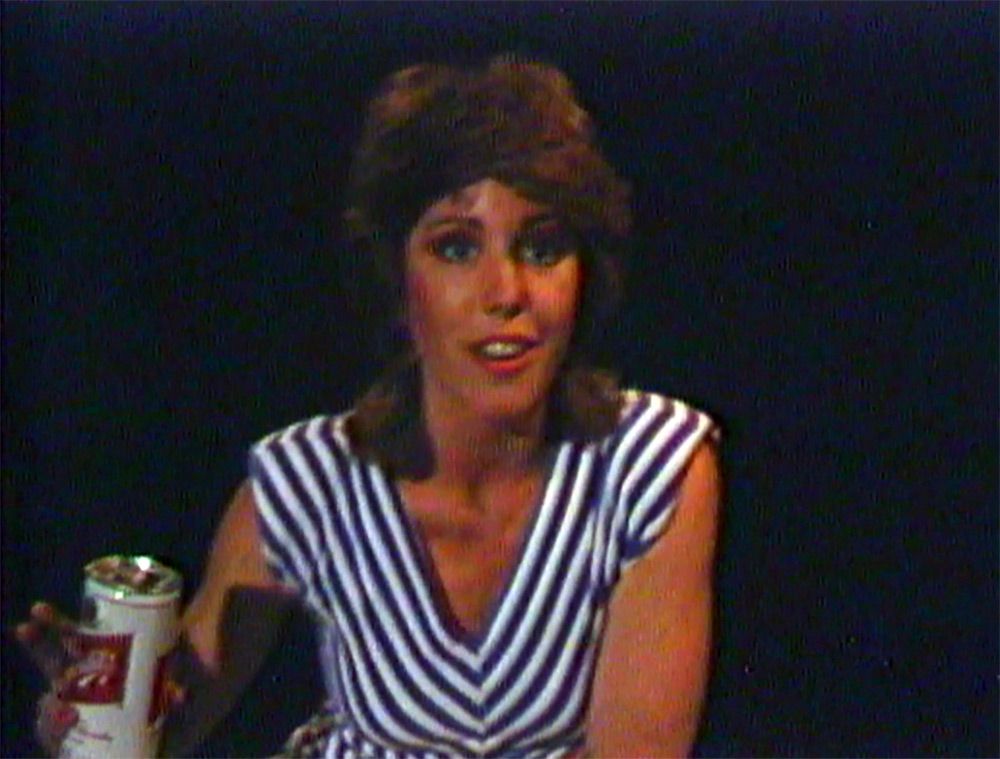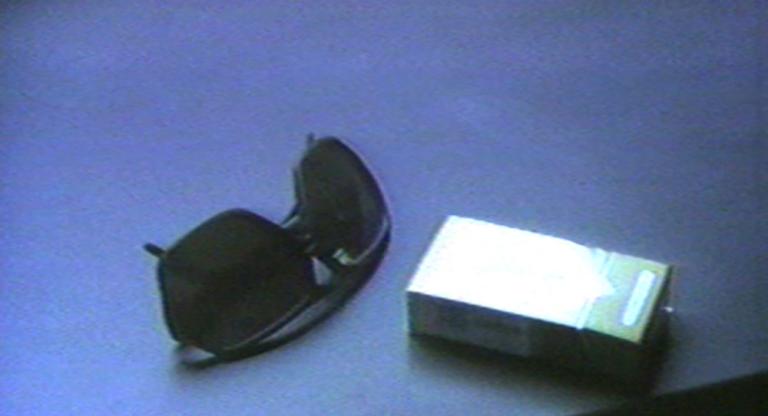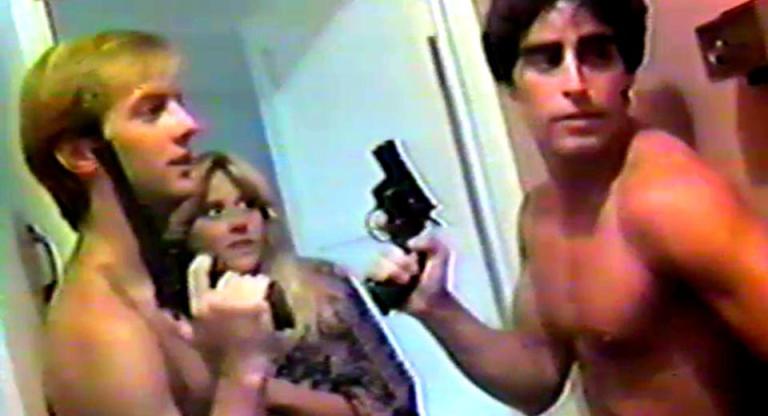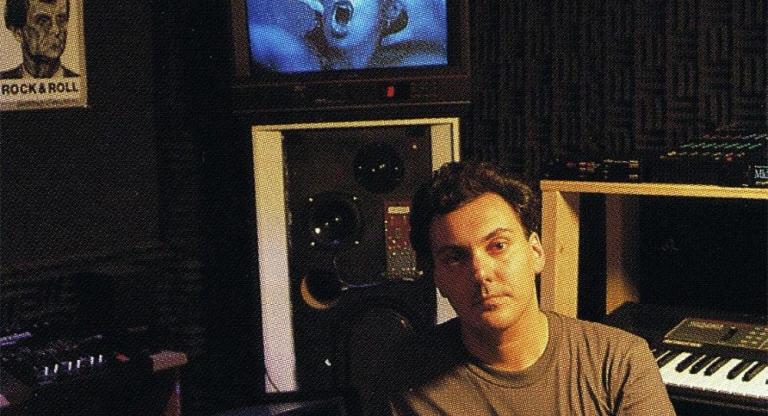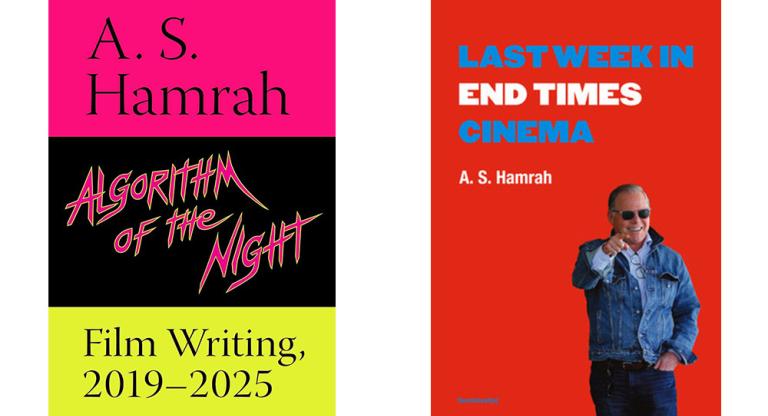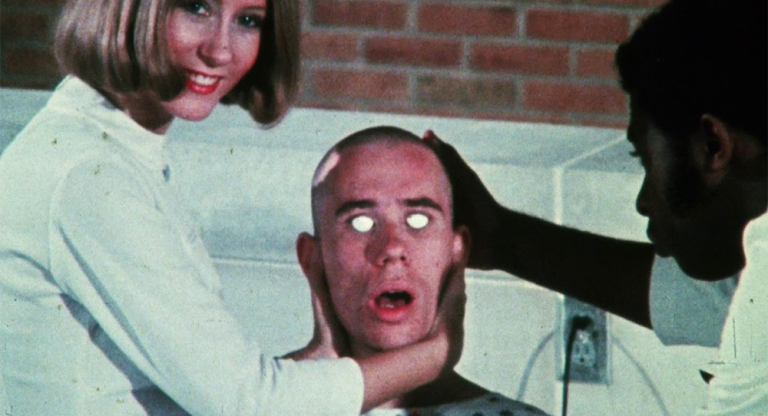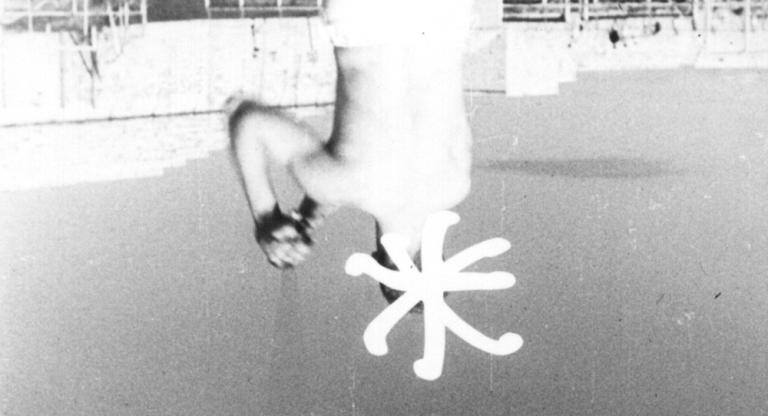It’s the early 1980s in the Los Angeles basin, and times are tough for Jackie. Her ex-husband and the father of her two young children, Johnny Dalton, is in prison again and desperately trying to win her back long-distance; Johnny’s teenage girlfriend Joann won’t give up the car he gave her, even though Jackie really needs it; her on-again, off-again lover Carson E. Cool is also sleeping with her sister, Teri; Jamal is creatively interfering with her routine for the Starlight Dance Palace and Gentlemen’s Club; and that’s really just for starters—so many of these problems go way back, run deep, and always keep her down and out. Johnny is the putative protagonist and tortured, charismatic-criminal lead of Dale Herd’s underground novel Dreamland Court, but Jackie is the real heart of the often hilarious, sometimes grim goings-on. Written purely in dialogue, the story of Johnny and Jackie is impossible to put down. In adapting his novel for the screen, Herd cuts the cast to just Johnny, Jackie, Carson, and Joann, and excerpts the text word-for-word, producing a bite-sized taste of the sprawling worlds and histrionic histories constructed in the characters’ narration.
Recorded mostly head-on in a black box, the movie visually captures the missed connections of the novel, which never provides both sides of a conversation. Johnny, Jackie, Carson, and Joann are often speaking to each other or about one another, but by reducing these to monologues that only interrupt or collide and never really meet on the page or onscreen, the style of both versions of Dreamland Court emphasizes the ways in which each speaker is always building a universe—often full of heartrending romance, cosmic sex, and high-octane action—around themselves, frustrated by their lovers’ inability to fully inhabit it and the interferences of all the day-to-day demands of life on the margins. The cadence and vocabulary read as authentic, but when spoken out loud for the EZTV camera, the performative nature of just being alive and experiencing life with intensity is exposed.
Johnny’s poetic pleas from prison for Jackie’s love, the sky-high depictions of tawdry escapades with the children sleeping in the next room—Jackie and Johnny’s is a love story that transcends their meagre surroundings, reminiscent of that of real-life lovers Nicole Baker and Gary Gilmore in Norman Mailer’s The Executioner’s Song. When Gary, who spent the majority of his life in and out of prison before his final, lethal stint on Utah’s death row, first meets young widow and mother of two Nicole, he keeps saying, “I know you,” later explaining, “Hey, there’s a place in the darkness. You know what I mean? I think I met you there. I knew you there.” This otherworldly and obscenely basic love persists beyond Gilmore’s world-historical story, emerging amidst the social injustice, legal and financial wranglings, and microcosmic tale of the American West that attended his eventual execution. Jackie and Johnny are like that, too, representations of the bottom rungs of the region but, in the end, star-crossed souls meeting on an otherworldly plane.
Joan Didion wrote in her review for The New York Times, “The authentic Western voice, the voice heard in The Executioner's Song, is one heard often in life but only rarely in literature, the reason being that to truly know the West is to lack all will to write it down.” Dale Herd’s “will” was such that he made this video version of Dreamland Court, with Barry Hall, in 1983; the novel was only published in full by City Point Press in 2022. The characters—plus Marge, Earle, Dawnie, Grams, and all the others—and the persistence of their dreams finds compelling expression in both the movie and the book, insisting on the galactic significance of even the most banal existence.
